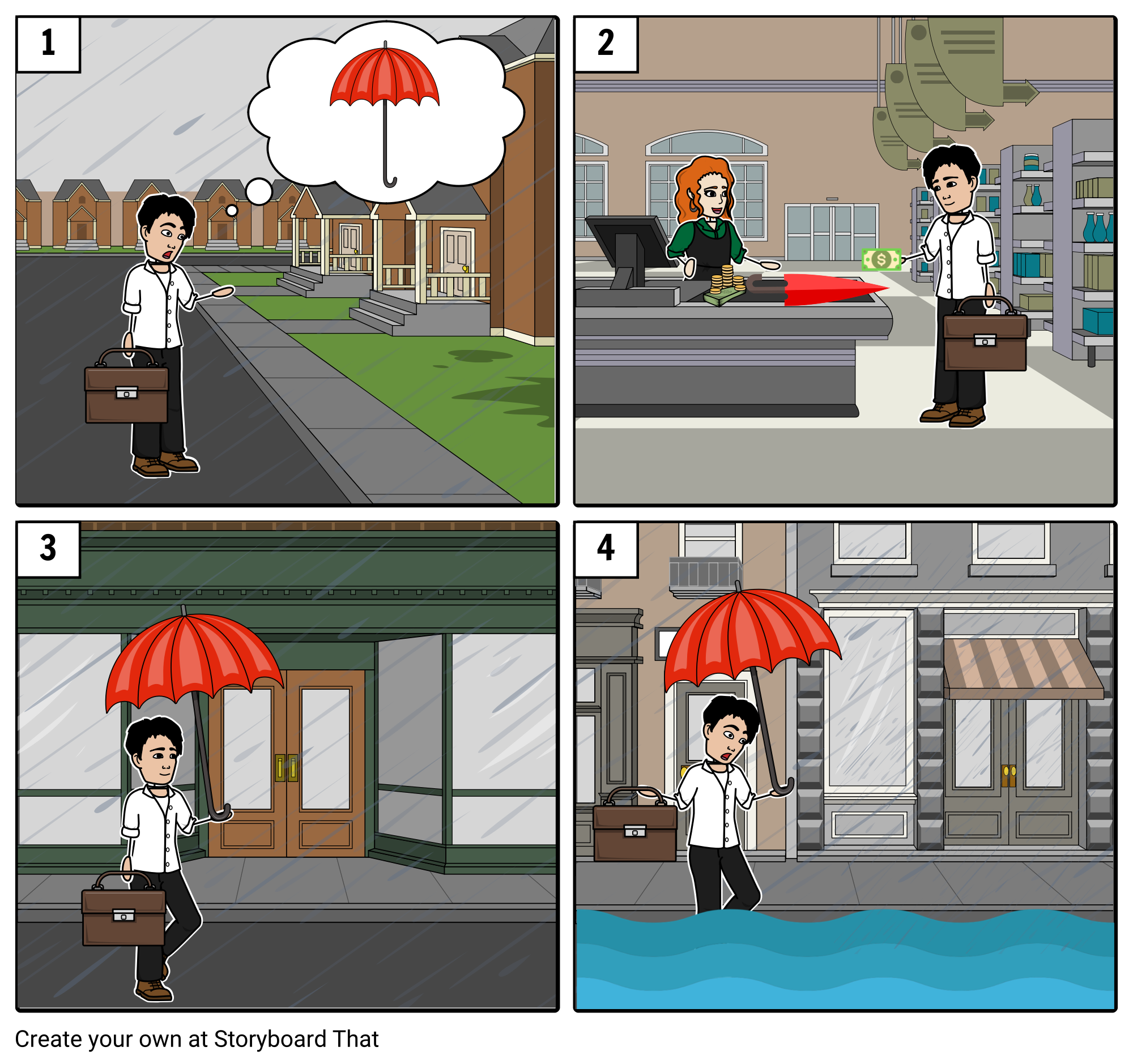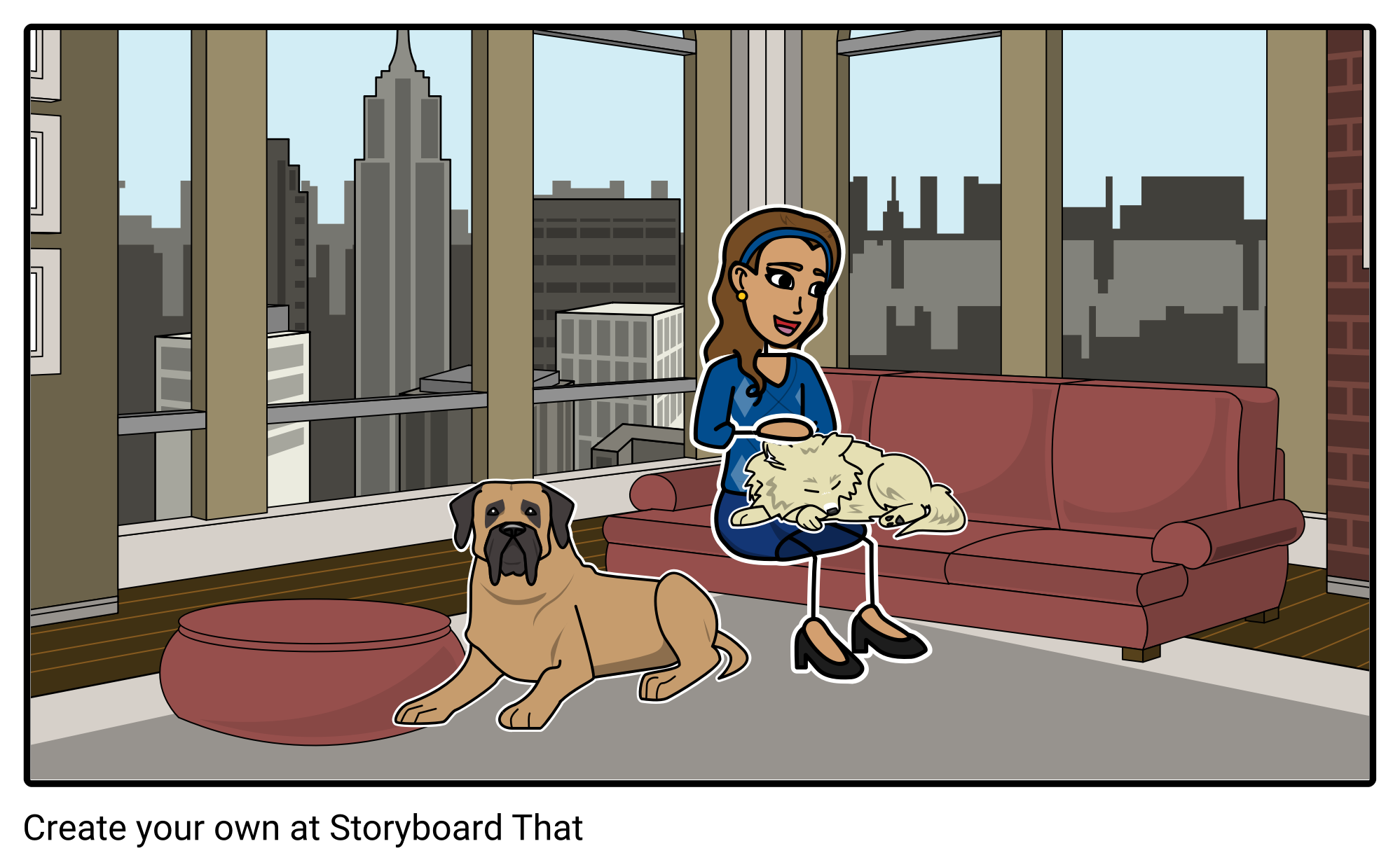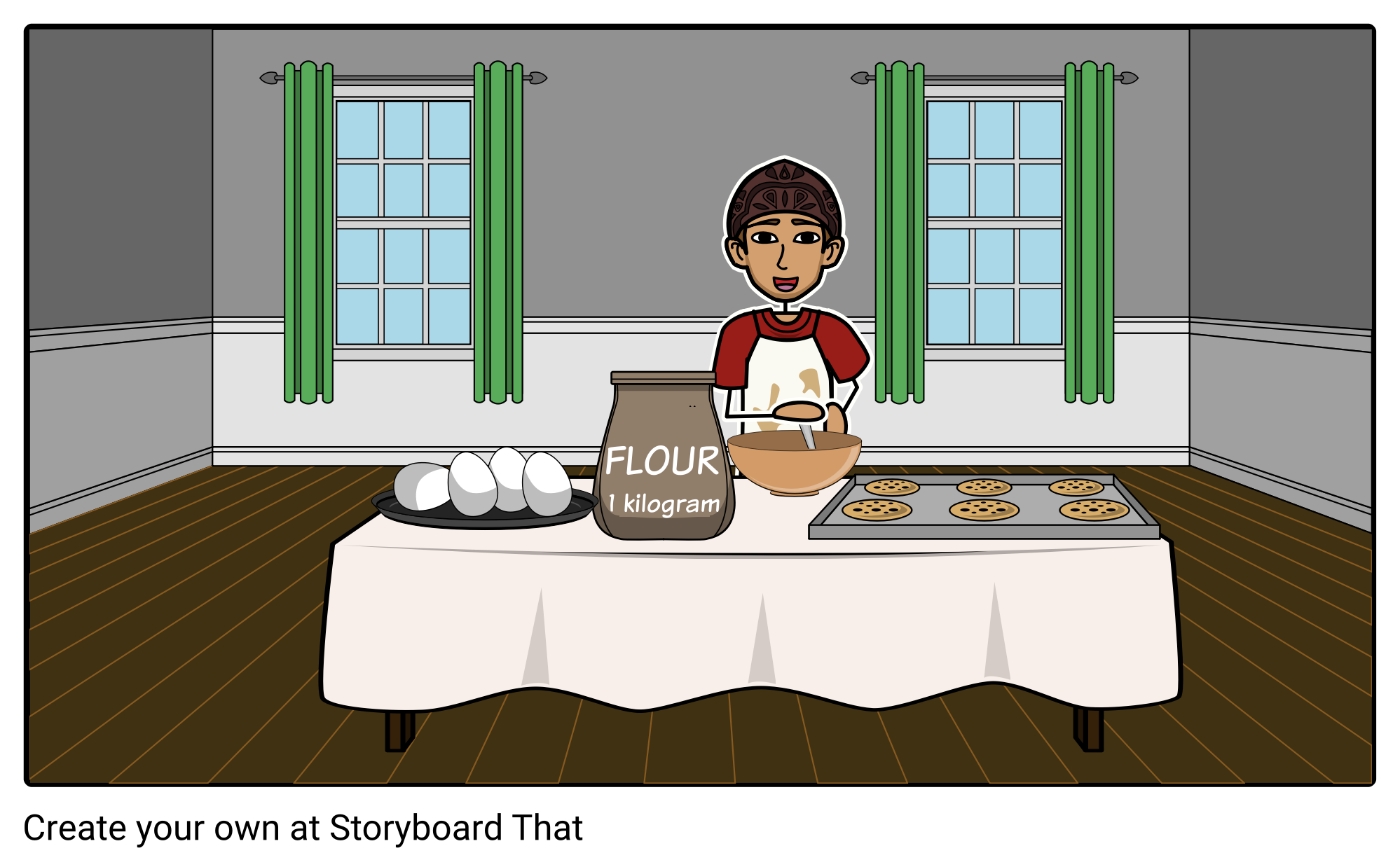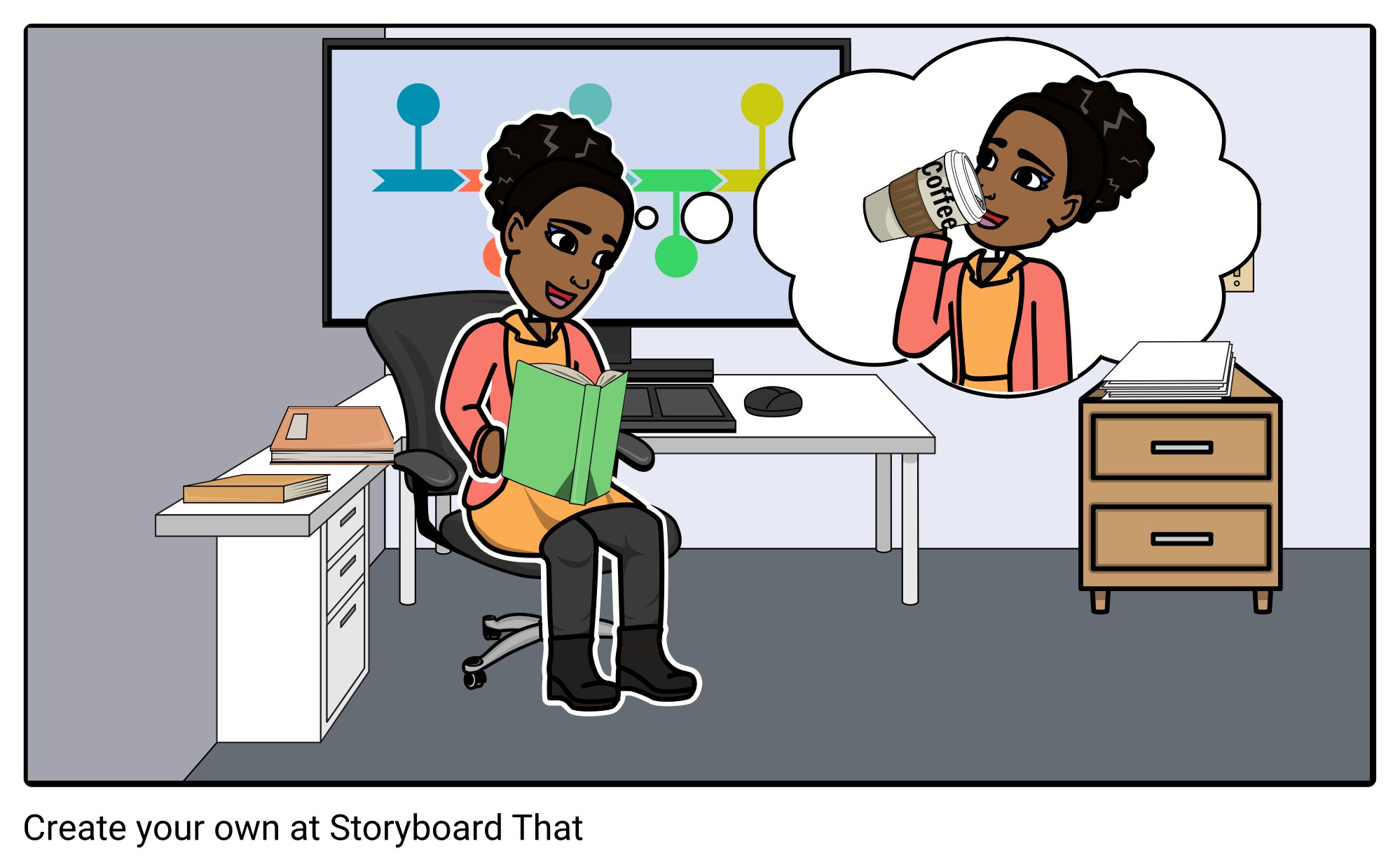まず講師がそれぞれの文章を音読します。講師に続いて読みましょう。
When making formal complaints, customers would state their name and their main concern.:
苦情を伝えるときは自身の名前と懸念を述べる
- Good morning, my name is Alice Smith. I would like to file a complaint.
- We would like you to replace the wrong products that you delivered.
When handling complaints, inform the customer about the process and verify the complaint first, then give assurance that the problem could be fixed:
苦情を伝えられたときは内容の確認を行い、対応過程をお知らせして懸念事項が対応されることを伝える
- Thank you for letting us know about the situation. We apologize for the problem we have caused.
- In response to your complaint, we will verify and check our records first to process it. You have our word that we will do everything to fix this problem.
- We value our customers’ needs and we hope to serve you again.
講師がアリス、あなたがエバンズさんになって、会話文を読んでみましょう。一度読んだ後、役を交代しましょう。
One busy morning, Mr. Evans receives a complaint call from a customer.
 Good morning, my name is Alice Smith. I called your company’s phone number and your customer service transferred my call to Quality Assurance Department. I would like to file a complaint. |
|
Good morning, Ms. Alice. I’m Mr. Evans, the Quality Assurance Head. What is your complaint about?  |
 Three days ago, my family ordered three dozens of Yummy Tuna’s Spicy flavor for our grocery store directly from your company and our order was delivered to us this morning. However, one dozen of Yummy Tuna is in Original flavor instead of Spicy flavor. We would like you to replace them with Spicy flavor. |
|
Thank you for letting us know about this situation and I apologize for the problem we have caused. In response to your complaint, we will verify and check our records first to process it. Once verified, you have our word that we will deliver a dozen Yummy Tuna, Spicy flavor, as soon as possible.  |
 If you don’t mind, we would like to receive them in less than two days since lots of customers are buying that product everyday. |
|
I shall take note of that. You will receive your chosen flavor in a day or two. We value our customers’ needs and we hope to serve you again. Thank you for your trust and have a good day.  |
会話文の内容について答えましょう。
| 1. | What is Alice’s complaint? |
| Answer: | ________________ |
| 2. | When should Mr. Evans deliver the dozen Yummy Tuna’s Spicy flavor? |
| Answer: | ________________ |
質問に答えましょう。
| 1. | When was the last time you made a complaint? What was your complaint? |
| Answer: | ________________ |
| 2. | Do you prefer to send your complaint/s thru email/phone call or talking to people about your complaint/s personally? |
| Answer: | ________________ |
以下の状況のとき、あなたならどうするか話してみましょう。
| 1. | A very angry customer calls due to bad sevice she experienced in your company. What would you do/say to calm him/her down first before saying his/her complaints? |
| Answer: | ________________ |
| 2. | As a customer, how would you complain if the food product (Example: Bread) you are about to buy looks bad and damaged? |
| Answer: | ________________ |
Grammar|英文法Lesson63:可算名詞・不可算名詞 (How much / How many) 2
可算名詞の数量について聞くときは、how many、不可算名詞の量について聞くときは、how much を使います。
Let’s read the following sentences. I will read part A, and you will read part B.
講師が A の部分を読みますので、B を制限時間 10 秒で音読しましょう。
| A: | How many cupcakes will you bake? |
| B: | I will bake 13 cupcakes. |
| A: | How much sugar do you want in your coffee? |
| B: | Just a little, please. |
| A: | How many books will you borrow? |
| B: | I will borrow 5 books. |
| A: | How much time do you have left to finish your homework? |
| B: | I still have a lot of time to finish my homework. |
| A: | How many cousins do you have? |
| B: | I have 2 cousins. |
| A: | Have you got any information about the school trip? |
| B: | No, I haven’t got much information about the school trip. |
Based on the given information, please answer the questions using countable and uncountable nouns.
与えられた情報をもとに、数えられる名詞と数えられない名詞を使って質問に答えてください。
Banana Muffins Recipe
| List | Amount |
|---|---|
| flour | 2 cups |
| eggs | 3 eggs |
| milk | 1 cup |
| sugar | 1/2 cup |
| banana | 4 bananas |
| butter | 1/2 cup |
1. How many eggs are needed?
Answer: _______________________________________________
2. How much sugar is needed?
Answer: _______________________________________________
3. How much flour is needed?
Answer: _______________________________________________
4. How many bananas are needed?
Answer: _______________________________________________
Based on the series of pictures, make a short story.
You have 20 seconds to prepare and 60 seconds to answer.
次のイラストのストーリーを説明してください。準備時間は 20 秒、回答時間は 60 秒です。

Express your opinion on the following topic. Give at least one reason to support your opinion. You have 60 seconds to prepare and 60 seconds to answer.
次の内容に関して、自分の意見とその理由を 1 つ以上述べましょう。 準備時間は 60 秒、回答時間は 60 秒です。
| Question: | Some people say that it is important to learn about foreign cultures. What do you think about that? |
| Answer: | _______________________________________________ |
| Grammar 文法 |
Pronunciation 発音 | Vocabulary 単語 |
Comprehension 理解 |
|
|---|---|---|---|---|
 GOOD GOOD |
文法の誤りはほとんどなく、完全な文章で話すことができる | ほとんどの単語をはっきりと正しく発音することができる | 習った表現を適切に使うことができる | 文章を理解し、質問に正しく答えることができる |
 FAIR |
文法の誤りはあるが、完全な文章で話すことができる | 発音の練習が必要な言葉がいくつかある | たまにミスはあるが、習った表現を適切に使うことができる | 文章を完全に理解するのは難しく、質問に正しく答えられないときもある |
 POOR |
文章で話すのは難しく、単語だけで話すことができる | 発音の練習が必要である | 習った単語と表現を少しだけ使うことができる | 文章を理解するのは難しく、質問に答えるのは難しい |
レッスン教材の改善・拡充を図ることを目的とし、アンケートを実施しております。
以下のURLからアンケートにお答えいただき、 ご意見・ご要望をお聞かせください。
アンケートはこちら
Beginner Business: Job Interview
まず講師が音読します。そのあと、文章を読んでください。
- I am a very hardworking and patient employee. I can work on my own as well as with a team.
- Having a 2-year experience in sales, one of my greatest strengths is paying excellent attention to details.
- I sometimes push my self to do more than what is asked from me; that is my weakness.
- I can begin working for your company as soon as possible.
- I am looking forward to work in your company and share my knowledge and skills.
会話文を読みましょう。講師がMr.Davies、あなたはMr.Evansのパートを読みます。読み終わったら交代しましょう。
One morning, Mr. Davies was having an interview with Mr. Evans.
 Good morning. I am Mr. Davies, the owner of Best Tuna Corporation. Thank you for being here for your final interview. So you are applying for the Sales staff position. Have a seat, Mr. Evans. How would you describe yourself as an employee? |
|
Thank you, Mr. Davies. First, I am very pleased to meet you. I am a very hardworking and patient employee. I can work on my own as well as with a team.  |
 That is interesting. Could you tell me about your strengths and weaknesses? |
|
Sure. Having a 2-year experience in sales, one of my greatest strengths is paying excellent attention to details. However, I sometimes push my self to do more than what is asked from me; that is my weakness.  |
 I understand. Your experience really fits the position you are applying for. Lastly, when is the earliest time you can begin working for us? |
|
I can begin working for your company as soon as possible. I am looking forward to work in your company and share my knowledge and skills.  |
会話文の内容について答えましょう。
| 1. | What position is Mr. Evans applying for? |
| Answer: | ________________ |
| 2. | What is one of Mr. Evans’ greatest strengths? |
| Answer: | ________________ |
質問に答えましょう。
| 1. | What was your very first job interview like? |
| Answer: | ________________ |
| 2. | What preparations do you do before attending an interview? |
| Answer: | ________________ |
以下の状況のとき、あなたならどうするか話してみましょう。
| 1. | You were invited for an interview, but you knew that you could not attend the interview at the time and date they gave you. What would you do? |
| Answer: | ________________ |
| 2. | You were asked by your interviewer what you thought were your best characteristics? What would you say? |
| Answer: | ________________ |
Grammar|英文法Lesson62: 可算名詞・不可算名詞 (How much / How many) 1
可算名詞の数量について聞くときは、how many、不可算名詞の量について聞くときは、how much を使います。

Hanna has two dogs. They are 2 years old. Their names are Sab and Princess. They have about 10 different toys to play with. Her dogs are big eaters. They can finish 1 kilogram of dog food in one day. Hanna loves walking with her dogs in the park. It is their way to exercise and have fun, so they go there every Saturday.
1. How many dogs does Hanna have?
Answer:_______________________________________________
2. How many toys do Sab and Princess have?
Answer:_______________________________________________
3. How much dog food can they finish in one day?
Answer:_______________________________________________

1. How many eggs are there?
Answer:_______________________________________________
2. How much flour does he have?
Answer:_______________________________________________
3. How many cookies are there?
Answer:_______________________________________________
1. How many classes do you have today?
Answer:_______________________________________________
2. How many students are there in your class?
Answer:_______________________________________________
3. How many people are there in your family?
Answer:_______________________________________________
4. How much rice can you eat in one meal?
Answer:_______________________________________________
5. How much water do you drink in one day?
Answer:_______________________________________________
| Grammar 文法 |
Pronunciation 発音 | Vocabulary 単語 |
Comprehension 理解 |
|
|---|---|---|---|---|
 GOOD GOOD |
文法の誤りはほとんどなく、完全な文章で話すことができる | ほとんどの単語をはっきりと正しく発音することができる | 習った表現を適切に使うことができる | 文章を理解し、質問に正しく答えることができる |
 FAIR |
文法の誤りはあるが、完全な文章で話すことができる | 発音の練習が必要な言葉がいくつかある | たまにミスはあるが、習った表現を適切に使うことができる | 文章を完全に理解するのは難しく、質問に正しく答えられないときもある |
 POOR |
文章で話すのは難しく、単語だけで話すことができる | 発音の練習が必要である | 習った単語と表現を少しだけ使うことができる | 文章を理解するのは難しく、質問に答えるのは難しい |
レッスン教材の改善・拡充を図ることを目的とし、アンケートを実施しております。
以下のURLからアンケートにお答えいただき、 ご意見・ご要望をお聞かせください。
アンケートはこちら
Beginner Business: Recommending Revisions
まず講師が音読します。そのあと、文章を読んでください。
Tell the person that he/she did his/her work well良い仕事をしてくれたことを相手に伝えましょう。
- Your business plan sounds like a good idea and you did a great job in doing your research.
- You and your team has done an amazing job on this project.
Tell the person of his/her mistake/s nicely
相手のミスを上手に伝えましょう。
- Even though your idea is great, I don’t think the president will accept your plan.
- If you look on page five of your business plan, there are pieces of information needed to be changed.
Recommend revisions
修正をすすめしましょう。
- I would recommend you to include more details on your business plan such as the cost and supplies that we are going to need.
- It would be great if you could put more information about our target costumers.
会話文を読みましょう。講師がMr.Davies、あなたはMr.Evansのパートを読みます。読み終わったら交代しましょう。
One morning, Mr. Evans is discussing a new business plan to Mr. Davies for their Yummy Tuna product.
 I believe it’s a great plan to make more flavors. However, your plan needs revision on page eight. Can we take a look at this part together? |
|
Okay, sir. As you can see on page eight, I have recommended four new flavors for our Yummy Tuna. If we sell four new flavors along with Yummy Tuna’s original flavors, we will be able to meet our sales goals before this year ends.  |
 I see. Based on your idea, we should start selling the new flavors by the first week of December. However, don’t you think we should produce two flavors first? We can always add flavors later. We are still short on supplies and capital. |
|
You do not have to worry, sir. I will have my team look for new suppliers. Although selling only two new flavors is a good idea, I think it is better to sell all four flavors. That way, we can get new customers.  |
 You have your points, Mr. Evans, but I still have few things that I need to see on your plan. Kindly include the capital we need, a list of possible suppliers, and a research on our costumers. I think we can give your idea a chance. |
|
I will get back to you next week with the revised plan. Thank you, Mr. Davies.  |
会話文の内容について答えましょう。
| 1. | What information did Mr. Davies want to see in Mr. Evans’ business plan? |
| Answer: | ________________ |
| 2. | Based on Mr. Evans’ business plan, when should they sell the four new flavors of Yummy Tuna? |
| Answer: | ________________ |
質問に答えましょう。
| 1. | Was there a time when you made a suggestion to revise someone’s work (Ex. Either to a friend/classmate/workmate)? |
| Answer: | ________________ |
| 2. | Has anyone made a revision on your work without telling you? |
| Answer: | ________________ |
以下の状況のとき、あなたならどうするか話してみましょう。
| 1. | During the meeting, you needed to tell your co-worker that her presentation had missing important information. How would you tell her that her presentation needs a revision? |
| Answer: | ________________ |
| 2. | You were to correct your co-worker’s project, but he gets easily hurt when someone suggests revisions for his work. How would you do to correct his work without hurting his feelings? |
| Answer: | ________________ |
Beginner Business: Asking for a Raise
まず講師が音読します。そのあと、文章を読んでください。
Use these expressions if you want to ask for a raise:
TRANSLATION:
- I really enjoy working for our company for five years.
- I have worked on several projects that helped our company reach its goals.
- I would like to ask for an increase in my salary in line with the value I’m bringing.
In case the boss needs some time to think before giving a raise:
昇給させる前に、上司が考える時間が必要な場合:
- I understand, sir/ma’am. When should I be hearing from you?
- Okay, sir/ma’am. I would be happy to wait for your answer.
会話文を読みましょう。講師がMr.Evans、あなたはMr.Daviesのパートを読みます。読み終わったら交代しましょう。
One morning, Mr. Evans talks to Mr. Davies about his salary raise.
 I really enjoy working for our company for the past five years. When we released the Yummy Tuna two years ago, I was given the position of Quality Assurance Head. Since then, we have kept on improving our products. |
|
Indeed. Your work has greatly affected our company growth. Keep it up.  |
 Thank you, sir. I’m proud that we were able to beat our sales goals while keeping our customers happy with our products. Those being said, I would like to ask for an increase in my salary in line with the value I’m bringing. |
|
It is clear that you did your job well as the Quality Assurance Head. With that, you certainly deserve a raise. Allow me to bring this up with the Human Resources Management Department. I shall get back to you for an update.  |
 Thank you very much, sir. When should I be hearing from you? |
|
You could follow up with me after a week. By then, I believe I already have the news for you.  |
会話文の内容について答えましょう。
| 1. | What is Mr. Evans is asking from Mr. Davies? |
| Answer: | ________________ |
| 2. | When should Mr. Evans ask Mr. Davies for an update ? |
| Answer: | ________________ |
質問に答えましょう。
| 1. | Do you think workers should ask for a reward after doing an excellent work? Why or why not? |
| Answer: | ________________ |
| 2. | Why do you think it’s important for workers to ask for a raise every once in a while? |
| Answer: | ________________ |
以下の状況のとき、あなたならどうするか話してみましょう。
| 1. | You asked your boss for a raise, but he did not agree with your request. He did not say his reasons why. How would you ask for his reasons in a polite way? |
| Answer: | ________________ |
| 2. | It has been three weeks since you asked your boss for a raise but until now, he hasn’t given you an answer. What would you do? |
| Answer: | ________________ |
Beginner Business Conversation : Asking for someone
Translation
One busy morning, Mr. Evans receives a complaint call from a customer.
 Good morning. This is Ron Evans speaking. Thank you for calling XYZ Corporation. How may I help you? |
Hello. I’m looking for Ms. Robins. Is she around? |
 To whom am I speaking to? |
My name is Alice Smith. She told me yesterday to call her back this morning to continue our talk about my project plan. Is Ms. Robins around? |
 I’m sorry, but Ms. Robins is not here right now due to an urgent meeting. However, she did leave a note in case you call. You can come and meet her here at two in the afternoon. |
Okay, that’s great. Please tell her that I will meet her there at two. Thank you! |
会話文に関する質問に答えましょう。
| 1. Question | Who is looking for Ms. Robins? |
| Answer: | ________________ |
| 2. Question | What time should Alice meet Ms. Robins? |
| Answer: | ________________ |
TRANSLATION
- Word: urgent (TRANSLATION)
Meaning:something important
TRANSLATION
Example: Mr. Davies is attending an urgent m. - Word: Occupied (TRANSLATION)
Meaning: busy
TRANSLATION
Example:: Mr. Davies is occupied at the moment.
講師の質問に答えましょう。講師にも同じ質問をしましょう。
| 1. | Have you ever had to call someone on the phone to ask if he/she is around? Yes or no? |
| Answer: | ________________ |
| 2. | Give at least three reasons why answering business calls should be taken professionally. |
| Answer: | ________________ |
| 3. | Have you been angry/mad while taking phone calls? |
| Answer: | ________________ |
| 4. | What is your most memorable phone call when you were asking for someone? |
| Answer: | ________________ |
| 5. | When was the last time you called to ask for someone if he/she is around? |
| Answer: | ________________ |
| 6. | Do you think it’s okay to call the same number again and again and ask if the person you’re looking for is around? |
| Answer: | ________________ |
| 7. | Do you have any bad experience while asking for someone on the phone? |
| Answer: | ________________ |
| 8. | Do you think it’s okay to message the person related to someone you’re looking for to know if he or she is around? Why or why not? |
| Answer: | ________________ |
| 9. | Do you think it’s safe to let the caller know where you are and what time you’ll be back to return his/her call? |
| Answer: | ________________ |
| 10. | If you were given the chance to phone call any person on Earth, who would that be and why? |
| Answer: | ________________ |
[Presentation] Video Presentation_2
単語と例文を音読します。講師の後に続いて読みましょう。
| Vocabulary | Sample Sentence |
|---|---|
| population 人口 |
The subject of my presentation is about the population of the music department. 私のプレゼンテーションのお題は音楽学部の人口についてです。 |
| department 学部 |
Please take a look at the graph about the number of students in the Music Department. 音楽学部の学生数のグラフをご覧ください。 |
| accommodate 受け入れる |
According to the school administration, the Music Department can only accommodate 10 students per year. 学校によると、その音楽学部は年間で10名しか受け入れていません。 |
| instruments 楽器 |
The reasons behind the limited slots are the number of professors and musical instruments available in their department. このように入学口が限られている背景としては、教授の人数と使用できる楽器の少なさがあります。 |
| limited 限られた |
The Music Department has a small population because of the limited slots. その限られた入学口により、音楽学部は少ない人口となっています。 |
プレゼンテーション中に使うジェスチャーの練習をしましょう。

1. To greet or acknowledge(あいさつ))
For example:
Ladies and gentlemen…

2. To introduce oneself(紹介)
For example:
I’m Hazel Thompson from the Southeast University.

3. To show data(データの提示)
For example:
As you can see in the graph…

4. To show important points(データの提示)
For example:
According to the school administration, the Music Department can only accommodate 10 students per year.

5. To show numbers(数字の提示)
For example:
They only have 5 music teachers.
ビデオを見ましょう。講師がチャットボックスにリンクを送ります。
プレゼンテーションを読んでください。下線部ではビデオで見たジェスチャーを使ってみましょう。
Ladies and gentlemen, allow me to extend a warm welcome to you.
I’m pleased to see everyone here today.
I’m Hazel Thompson from the Southeast University.
The subject of my presentation is the population of the music department.
Let’s begin the presentation.
Please take a look at the graph about the number of students in the Music Department.
As you can see in the graph, there are only 50 students enrolled in the Music Department for this school year. That is only 5 percent of the school population. According to the school administration, the Music Department can only accommodate 10 students per year. The reasons for the limited slots are the number of professors and musical instruments available in their department. They only have 5 music teachers. Two of them teach different musical instruments while the remaining three teach musical instruments and song-writing. Another reason is that the department has a limited number of guitars, cellos, violins, pianos, trumpets, and mandolins.
To summarize the presentation, I would like to mention that the main reasons the Music Department has a small population are the limited number of teachers and musical instruments they have.
If you have any questions, please don’t hesitate to ask.
To conclude this presentation, the school administration should allocate more funds to the Music Department so they can hire more teachers and provide more musical instruments to students.
We’ve covered each item on the agenda. That will be all for today.
単語と例文を音読します。講師の後に続いて読みましょう。
| Vocabulary | Sample Sentence |
|---|---|
| homeschool 自宅学習 |
Please take a look at the graph about the number of homeschooled students. 自宅学習者の人数についてグラフをご覧ください。 |
| convenient 都合がよい |
More students are becoming interested in homeschooling because it is convenient. 都合がよいので、より多くの生徒が自宅学習に興味を持ってきています。 |
| program プログラム |
The homeschool program is perfect for students who have part-time jobs. 自宅学習プログラムはアルバイトをしている生徒にとって最適です。 |
| future 将来 |
More students will be interested in this program in the future. 将来、より多くの生徒がこのプログラムについて興味をもつでしょう。 |
| agenda 議題 |
We’ve covered each item on the agenda. 議題のそれぞれの項目について触れました。 |
以下のプレゼンテーションを読みましょう。下線部では練習したジェスチャーを使ってみましょう。
Ladies and gentlemen, allow me to extend a warm welcome to you.
I’m pleased to see everyone here today.
I’m Ken Smith from Johnsons Academy
The subject of my presentation is about homeschooling.
Let’s begin the presentation.
Please take a look at the graph about the number of homeschooled students.
As you can see in the graph, the number of students who are homeschooled increased in the past 2 years. The reason for the increase is that more and more students are becoming interested in homeschooling because it is convenient. According to the students, homeschool program is perfect for students who have part-time jobs because they only need to go to school once a week.
If you have any questions, please don’t hesitate to ask.
To conclude this presentation, the school administration should focus on improving the homeschool program so students will continue with this program.
We’ve covered each item on the agenda. That will be all for today.
Eiken 3_16
Read the passage silently for 20 seconds. Then, read the passage aloud in 1 minute starting from the title.
Coffee
Coffee is a famous drink. A lot of people drink coffee when they are at work. It helps them not to feel tired, so many people like to drink coffee.
Please look at the passage.
Why do many people like to drink coffee?
Please study the picture below.

Please look at the picture.
How many books are there?
Please look at the woman.
What is she going to do?
What is your favorite month?
Do you like football?
If yes → Please tell me more.
If no →
Eiken 3 Batch 3_1
In this lesson, you will practice reading passages and answering questions.
Please read the passage below silently for 20 seconds.
Then, please read aloud the passage starting from the title.
I will correct your pronunciation as you read.
Chocolate
A lot of people like eating chocolate. They often eat chocolate after eating lunch or dinner. There are white, brown, and dark chocolates. Chocolates are sweet, so many people like it.
Please look at the passage. Why do many people like chocolates?
Please read the passage below silently for 20 seconds.
Then, please read aloud the passage starting from the title.
I will correct your pronunciation as you read.
New Year’s Eve
New year’s eve is a famous holiday. People prepare different kinds of food to eat with their family. Many people are excited about the coming year, so they have parties in the last night of the year.
Please look at the passage. Why do many people have parties in the last night of the year?
Please read the passage below silently for 20 seconds.
Then, please read aloud the passage starting from the title.
I will correct your pronunciation as you read.
Going to a Park
Many people like going to a park. People can do many things there like walking or running. A park has a lot of trees, so it is a nice place to walk or run.
Please look at the passage. Why is a park a nice place to walk or run?
Please read the passage below silently for 20 seconds.
Then, please read aloud the passage starting from the title.
I will correct your pronunciation as you read.
Taking Pictures
Many people often take pictures of food and places. They also enjoy taking pictures with other people. Many people like taking pictures, so they always have their cameras with them.
Please look at the passage. Why do many people always have their cameras with them?
Please read the passage below silently for 20 seconds.
Then, please read aloud the passage starting from the title.
I will correct your pronunciation as you read.
Dictionary
A dictionary helps people studying different languages. They can easily look for words that they do not understand. It helps people understand new words, so they bring a dictionary all the time.
Please look at the passage. Why do people bring dictionary all the time?
Please read the passage below silently for 20 seconds.
Then, please read aloud the passage starting from the title.
I will correct your pronunciation as you read.
Supermarkets
A lot of people like going to supermarkets. They often go there with their family or friends. People buy food and things they need at home, so some people go to supermarkets every weekend.
Please look at the passage. Why do some people go to supermarkets every weekend?
Please read the passage below silently for 20 seconds.
Then, please read aloud the passage starting from the title.
I will correct your pronunciation as you read.
Riding a Bus
Today, a lot of students ride a bus. It is one way to go to school. Riding a bus is cheap and fast, so most students choose to ride a bus.
Please look at the passage. Why do most students choose to ride a bus?

